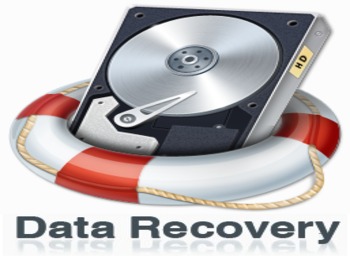As much as we love technology, we also can’t deny how much of a headache it is once they no longer work as they should or that to get them back working again will take too much of our time, effort, and money. Yet unfortunately, you will experience it many times in your lifetime when you own one, two, or more gadgets.
Some may be able to pull off fixing their own gadgets; especially if they have the technical background required but not everyone is tech savvy when it comes to PC or gadget repair. Then, there is the even more stressful aspect of data recovery. It won’t be as painful for someone who has the common sense to save duplicate copies of their work and files to a secondary storage device or up to the cloud but sad to say that not even half of the population does that.
 More often than not, hard drives would often need to be replaced and you are not guaranteed that you can still get your lost files back. Anyone would likely give a shot at data recovery if they are in the unfortunate situation of having their files corrupted either through the web or because of a malfunctioning device even if no matter how costly it is. Since most of you have no idea about data recovery prices, you can easily be ripped off by unscrupulous technicians who will take advantage of every opportunity to make more money without even telling you the truth that there is a slim chance you’d actually be able to get your lost data back.
More often than not, hard drives would often need to be replaced and you are not guaranteed that you can still get your lost files back. Anyone would likely give a shot at data recovery if they are in the unfortunate situation of having their files corrupted either through the web or because of a malfunctioning device even if no matter how costly it is. Since most of you have no idea about data recovery prices, you can easily be ripped off by unscrupulous technicians who will take advantage of every opportunity to make more money without even telling you the truth that there is a slim chance you’d actually be able to get your lost data back.
Recovery services are also the only viable option if the machine was exposed to water or if it was dropped and it’s likely some part of the drive was broken. If you hear loud clicking noises, or the machine was immersed in liquids, then the best route is to turn it off and keep it off. Never use a hairdryer or other hot air on the machine as this can push the liquid into further components and create an environment of high humidity. Simply find a recovery service and let the experts handle it.
Beware Software Tools
There are hundreds of software utility tools that can be downloaded off the internet for free and offer promises of fast and easy data retrieval. Unfortunately, some of these are unreliable and worse have limitations on the amount of data you can recover without upgrading to a paid version. If going down this route, only choose well known, and well respected programs.
Reduce the risks of data loss
Despite the availability of some recovery options, the best way to avoid going through the expensive recovery process is to proactively manage data so that if a device fails, it does not have as big of an impact on your productivity. You simply buy a new machine and go about your day. Here’s some tips for reducing the risks of data loss:
(Via: https://betanews.com/2017/12/05/diy-data-recovery-challenges-and-alternatives/)
The first thing you need to know is that technicians charge by the hour. It’s the golden rule of their trade regardless of the amount of data recoverable or whether they’ll be able to recover anything or none at all. And there are other things you need to consider aside from that. At times, you may be charged for the cost of parts when the problem involves a mechanical failure of the drive. We’re not even considering how much it will cost to diagnose your problematic hard drive if you want to know what caused it to malfunction.
If you’re struggling to get to grips with data recovery pricing yourself, read on – the following guide should give you an idea of how much your next job will cost.
The first rule of data recovery: You pay for time, not quantity
The first thing you should know about data recovery pricing is that you’ll almost always be charged by the time the job takes, not the amount of data you need to recover, and any company that says differently should be eyed with suspicion.
Think about it: if you bring a shattered hard drive into the shop, the recovery job is essentially the same regardless of whether you’re attempting to grab a single file or several gigabytes of data. The real work is getting the drive to function again, not to transfer some or all of its contents to a fresh medium.
(Via: https://www.krollontrack.co.uk/blog/concepts-explained/data-recovery-pricing-explained/)
Remember that there are factors you need to take into consideration that led to the ultimate demise of your hard drive. Make sure you regularly upgrade your device so it is protected against the latest versions of bugs out there and you can eliminate them as potential threats to your device. Don’t underestimate the capability of malware in rendering your device useless and you end up worrying about data recovery issues when it could’ve been easily avoidable by being a little cautious whenever you use the web. Prepare to really shed out money when it comes to PC issues. To give you a better idea how much to prepare, this may help https://www.harddriverecovery.org/pricing/. For RAID recovery pricing, check here https://www.harddriverecovery.org/about/raid-pricing/.
